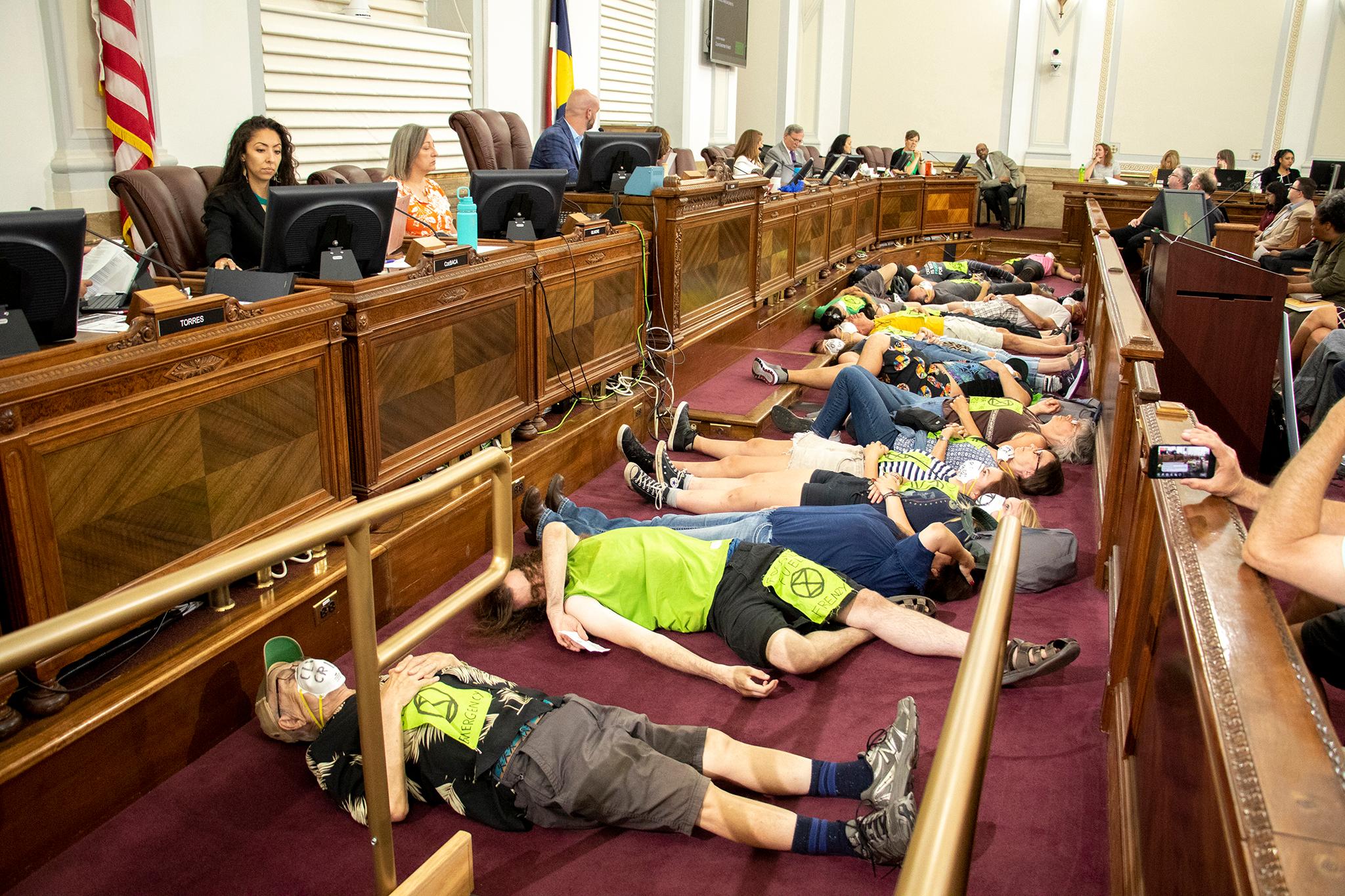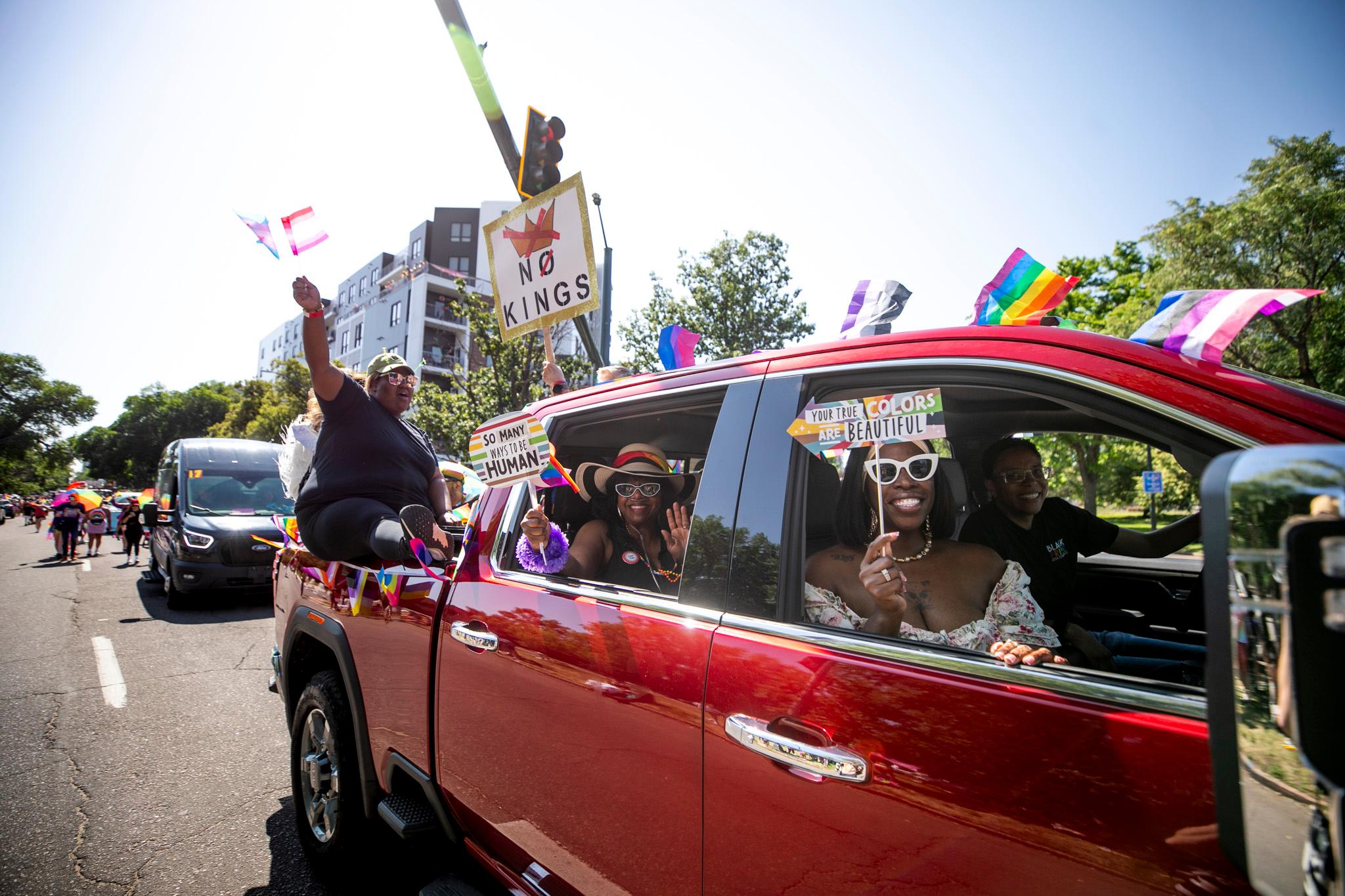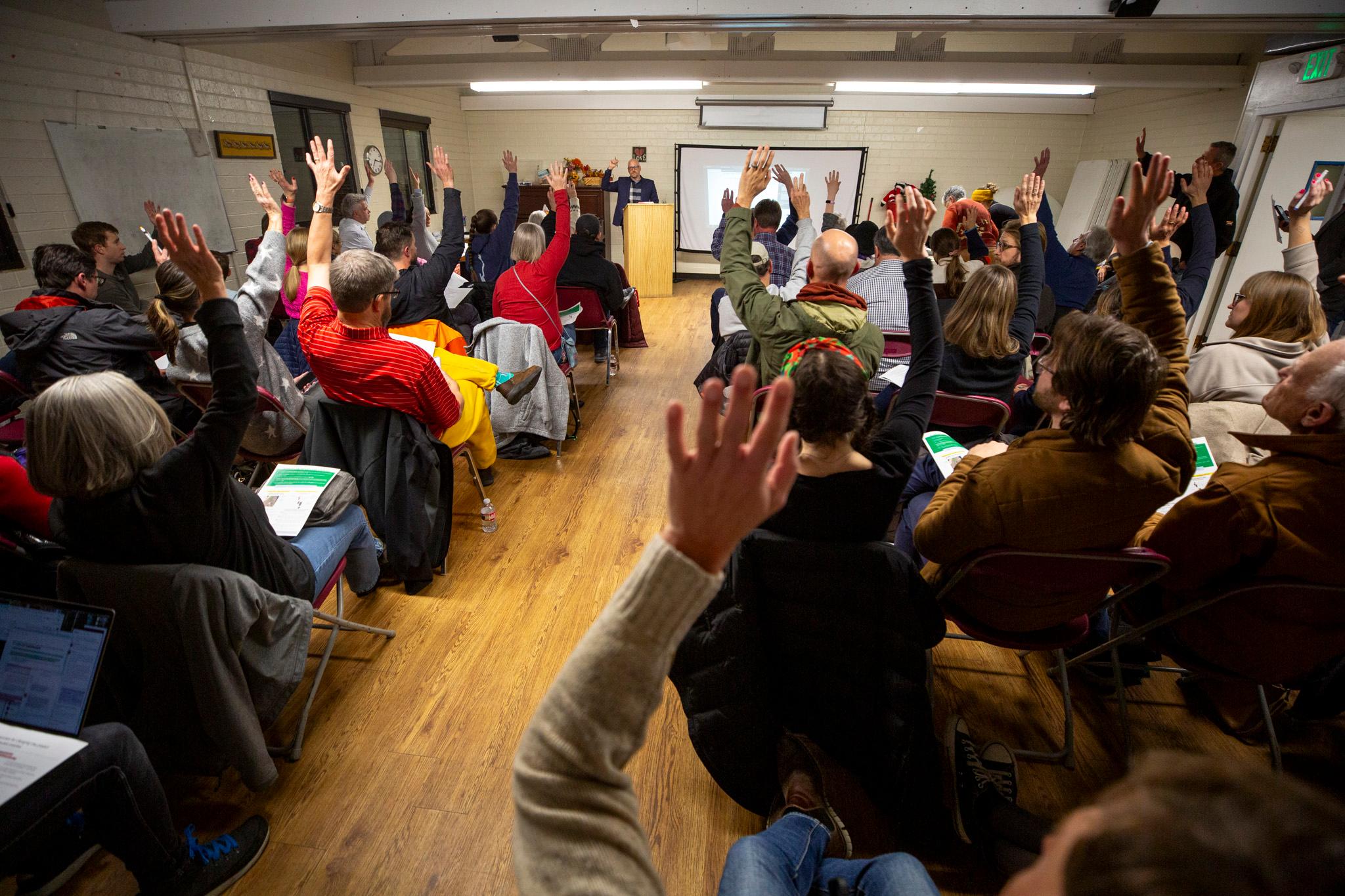Over the last two weeks, a seemingly mundane addition to the Denver City Council's rules of conduct has evolved into a debate over freedom of speech, access to elected officials and... niceness.
Councilmembers began discussing new rules on acceptable public behavior in October after a provocative display by Extinction Rebellion, a group of advocates for climate change action. Several protesters played dead on the floor in an aisle meant to separate elected officials from the public, hemming in council members (particularly Councilman Chris Hinds, who uses a wheelchair).
Among the new lawyerly-sounding rules, adopted Monday by a 12-1 vote: Members of the public can not impede "the orderly conduct of a meeting." Visitors must remain seated unless addressing the council and cannot enter the well -- the space between the pews and dais -- without permission. In extreme circumstances, the council president can make people leave the chambers and ban them from returning for 30 days.
While rules of decorum have long governed how council members act, rules governing the public's behavior were never official until Monday.
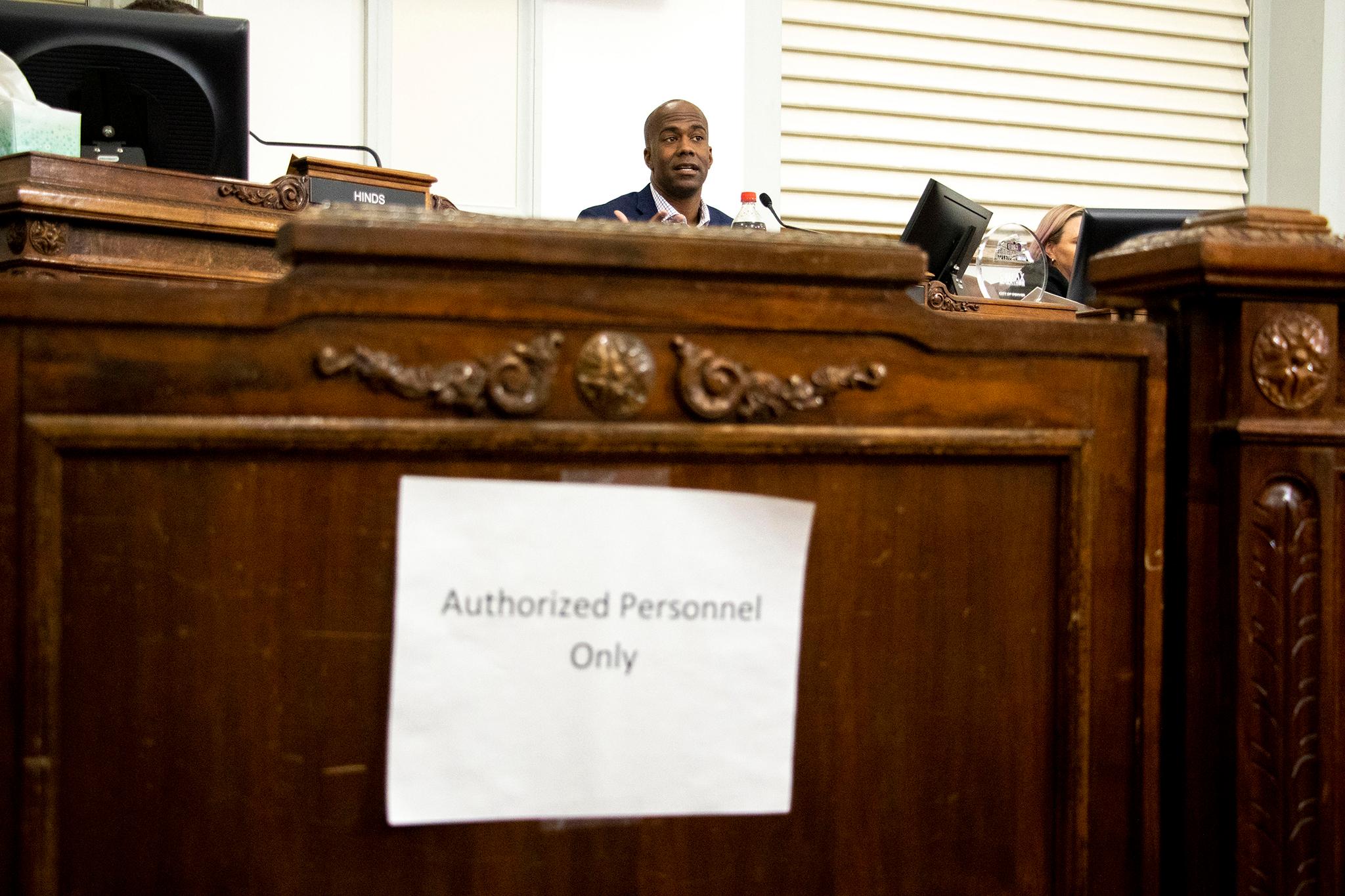
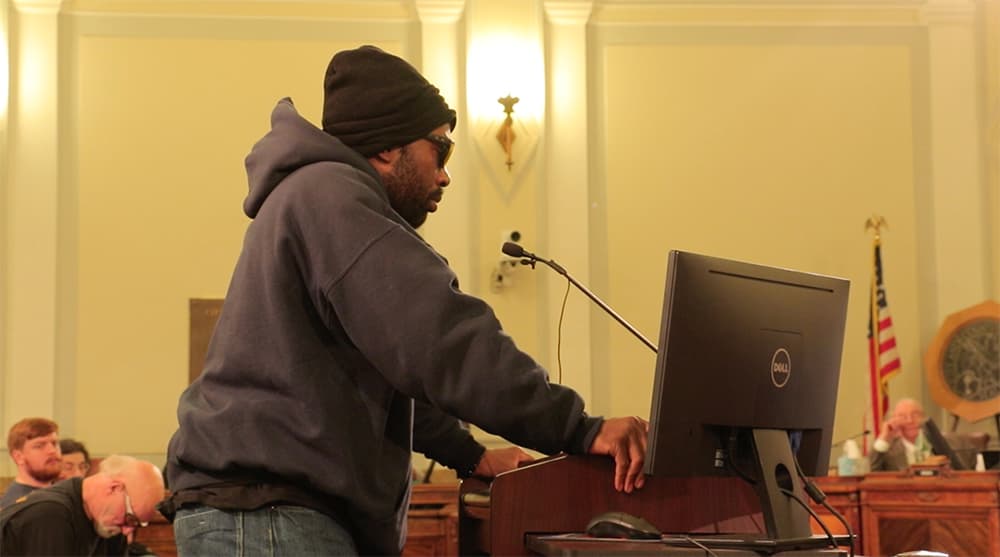
"Prior to this point, we could just say, 'Hey, this is what you can and cannot do as members of the public,' but nothing was in writing," said Councilman Chris Herndon, who filed the new rules after the council discussed them last year.
Herndon said the rules are good for transparency because now that they're in writing, a hypothetical rogue council cannot change them on a whim.
Councilwoman Candi CdeBaca resented some of the new rules -- and at least one of the old ones.
Restricting the public's actions restricts their constitutional rights, she said, and felt like the rule-making process, though public, was not publicized enough.
"The attempts to curtail First Amendment rights with members of council and the public without involving a more robust and collaborative discussion is not appropriate, especially in the current political context when everyday individuals are losing their rights," CdeBaca said.
Count Jesse Parris in agreement with CdeBaca. No Denverite exercises his right to speak at council meetings as often as Parris, who shows up to Council Chambers nearly every Monday and comments on nearly every item that allows it.
"People should feel free to come here whenever they feel like it and voice their opinion, no matter who it offends or upsets," Parris said. "That's called freedom of speech."
On Monday, CdeBaca also took aim at a rule meant to govern council members' behavior. It forbids "impugning" fellow members, or calling into question the honesty and motives of other councilmembers. Some might say to impugn is to get personal.
"I think in a perfect world it would be great if collegiality was the primary operation but I don't think that's the job we were hired to do by our constituents," she said. "I didn't think that by default we necessarily belong to a body that we can trust, that we cannot question."
Among other amendments aimed at loosening the abilities of the public, CdeBaca suggested removing the term "impugn" from the list of things council members cannot do. No takers.
"The minute you cross over from arguing against ideas to arguing against the person that you are, that's to impugn ... Attack my ideas. Attack my proposal," said Councilwoman Robin Kniech, "but the moment we start to attack each other as individuals, I think we lose a piece of our soul."
The rules passed 12 to 1, with CdeBaca dissenting. But her attempts to adjust the code of conduct are still alive. She and her colleagues will discuss her proposed changes, some of which seemed to gain initial support but required more discussion, during a committee meeting Wednesday.

